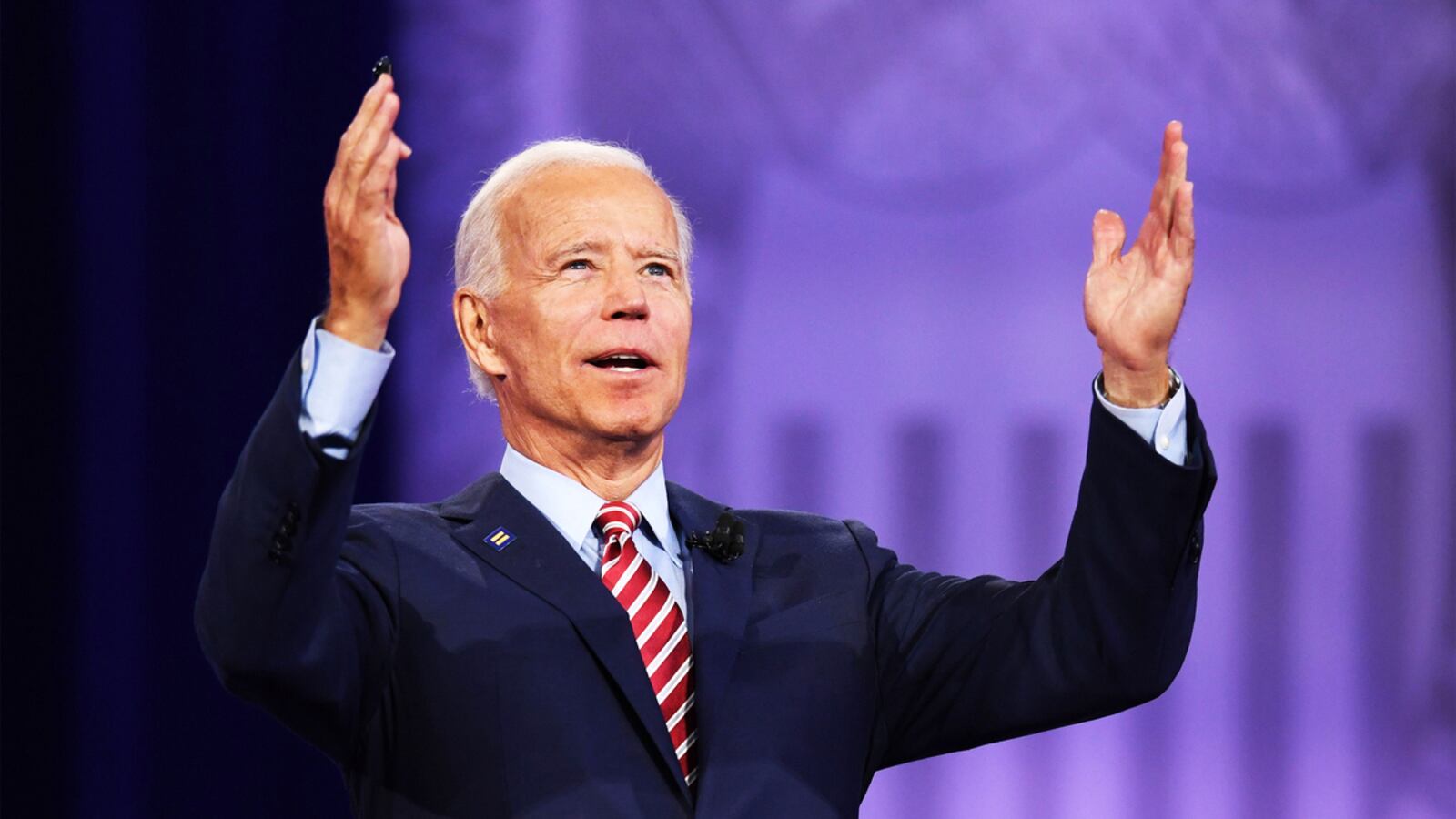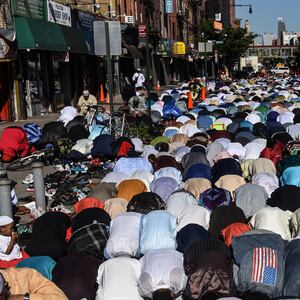I’ve witnessed the full arc of how the Muslim American community has been “courted” by Democrats over the past 20 years. In a nutshell, we’ve gone from Democrats publicly rejecting our support to now, two decades later with Joe Biden, being courted at the earliest point ever by the presumptive Democratic presidential nominee who on Sunday released his detailed “Agenda for Muslim Americans.”
The reason for this change is exactly the same reason other minority communities have seen a similar evolution of how politicians treat them: They get that our votes actually matter in terms of their winning or losing an election. And a big part of the reason Muslims have become so politically engaged is in direct response to Donald Trump’s spewing of hate against our community.
The first instance I can recall of a well-known Democrat rejecting the support of Muslim Americans came in 2000, when Hillary Clinton was first running for U.S. Senate in New York. She had received $50,000 in contributions at a fundraiser sponsored by a Muslim American organization. However, after reporting that some members of the organization had made comments highly critical of Israeli policy—making it a hot-button issue in the campaign, given New York’s large Jewish population—she publicly returned all the funds.
Clinton’s very public rejection of the money sent a message to Democratic candidates nationwide that they should be weary of accepting the support of Muslim Americans because it could be used a political weapon against them.
Given Clinton’s response and the fact that the Democratic nominee Al Gore was seen as supporting the hawkish AIPAC line on Israel, it’s not surprising then that in 2000, a survey conducted by the Council on American-Islamic Relations shortly after that election found that approximately 70 percent of Muslims said they had voted for George W. Bush. (Bush’s father was also a very outspoken opponent of Israeli’s expansion of settlements.)
Even in 2008, when Muslims were fully on board with Barack Obama’s campaign, there was a sense that those feelings weren’t reciprocal. The fact that Obama was dodging “allegations” that he was a Muslim likely contributed to his standoffishness. For example, two women wearing hijabs were actually removed from standing behind then-candidate Obama at a 2008 rally for fear of bad optics—they were told by the campaign worker that it wouldn’t be good for Obama to be visibly associated with Muslims given the current “climate.” (Obama’s spokesperson apologized after the incident.)
And I can tell you firsthand it was a struggle for many Muslim organizations to make inroads with the Obama administration during the early part of his tenure. While there were private meetings, It wasn’t until 2015 that Obama held a public meeting at the White House with Muslim American leaders (I was part of that group) to hear our concerns. And it was not until his final year in office that Obama visited an American mosque.
While Obama’s embrace may have been lukewarm, it felt like a bear hug when compared to the GOP’s non-stop demonization of Muslims. GOP leaders from Newt Gingrich to Michele Bachmann painted Muslims as a dastardly group bent on imposing Sharia law and destroying America by infiltrating the government. Trump simply took anti-Muslim bigotry to new lows.
Some may think that in 2016 the Muslim community really came into their political own. After all, Bernie Sanders openly embraced Muslims, even featuring Muslim American activist Linda Sarsour in a campaign commercial produced by Spike Lee. And Hillary Clinton—who had once rejected Muslim American campaign contributions—had hired Muslim Americans in key positions from Huma Abedin to Muslim community outreach coordinators.
In fact, in the closing days of the 2016 campaign, articles were written about Muslim Americans possibly tipping the balance for Clinton in key swing states such as Michigan, Virginia, and Florida, which boast sizable Muslim populations. The reality is that Muslims I spoke with as a surrogate for the Hillary campaign in the closing weeks of the 2016 campaign weren’t excited about Clinton, primarily for her hawkish views, and thought Trump would lose based on polls.
All of that changed with Trump’s victory. He lit a fire under us. Forget just registering to vote; Muslims have run for office over the past few years in never-before-seen numbers, with the 2018 election ushering in the most Muslims ever in Congress (three) to Muslims running and winning elections across the country from school board to state senate to the first statewide office holder with Keith Ellison’s 2018 victory for Minnesota Attorney general. And as Emgage Action, an organization that focuses on increasing Muslim voting participation, found that Muslim voters came out to vote in the 2018 midterm in key states like Michigan, Virginia, and Florida at on average 20 percentage points more than in the 2014 midterm.
Couple that with Trump having only a 16 percent approval rating among Muslims and our community has growing political muscle in those swing states. You get the backdrop of why Biden earlier this week put out a detailed “Agenda for Muslim Americans.” In this, Biden addresses in a thoughtful manner many of the issues of great concern to our community from healthcare to countering hate crimes to human rights.
But as Biden’s senior adviser for Muslim Engagement Farooq Mitha (a longtime friend) explained, it’s not just about political calculations. Rather Biden is disgusted by Trump’s “hateful and xenophobic rhetoric and policies” directed at Muslims. Mitha also added something that is so vitally important for every minority community to hear: namely, that Biden is “committed to have Muslim voices at the table on issues from the economy to health care to education.”
It’s that commitment to including Muslim voices in key policy discussions that led Wael Alzayat, the CEO of Emgage Action, to endorse Biden, noting that the campaign reached out to Muslims groups for input when formulating the recently released Muslim agenda.
This November’s election is unlike any other for the Muslim community. It’s not political, it’s personal. Trump has used us as red meat for the bigots of his base, which in turn inspired countless hate crimes against our community. In fact, just weeks ago, Trump again ginned up hate against the Muslim community suggesting we would have more rights than Christians to worship during the coronavirus shutdowns. Few things would bring me and many in my community more joy than not just seeing Trump defeated on Nov. 3, but knowing that we played a role in evicting him from the White House!







